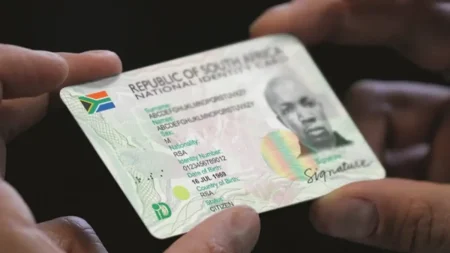Spaza shops are a crucial part of South African communities, offering daily necessities to millions of people. However, ensuring these businesses operate legally is essential. Spaza Shops Registration is necessary to comply with government regulations, provide consumer protection, and access business support services.
In this guide, we will explain how to check if a spaza shop is registered and what steps to take if it is not. Whether you are a customer, competitor, or business owner, understanding Spaza Shops Registration is important for a fair and thriving business environment.
Why Spaza Shops Registration is Important
Every spaza shop in South Africa must be registered according to national and municipal regulations. Here’s why Spaza Shops Registration is essential:
- Legal Compliance – A registered business operates within the law and avoids penalties.
- Consumer Safety – Registration ensures food and hygiene regulations are followed.
- Business Support – Registered businesses can access funding, loans, and government grants.
- Fair Competition – Prevents unfair business practices by ensuring all shops comply with tax laws.
If a spaza shop is not registered, it could be at risk of legal action, fines, or even closure by authorities.
How to Check If a Spaza Shop is Registered
If you want to check whether a spaza shop is legally operating, follow these steps:
1. Use the CIPC Online Database
The Companies and Intellectual Property Commission (CIPC) is responsible for Spaza Shops Registration in South Africa. To check if a business is registered:
- Go to www.cipc.co.za
- Click on “BizPortal” or “Company Search”
- Enter the business name or registration number
- If the business is registered, you will see its details
If the shop is not listed, it may be unregistered.
2. Visit Your Local Municipality
Most spaza shops must also register with their local municipality. To check:
- Visit the municipal offices in the area
- Request information about the shop’s business license or permit
- Ensure the shop has a valid trading permit
Municipal registration is essential for compliance with local health and zoning regulations.
3. Ask the Shop Owner
Sometimes, a shop owner may have their registration documents available. Politely ask:
- “Do you have a business registration certificate?”
- “Is your shop registered with the municipality?”
Honest business owners will be able to provide proof of their Spaza Shops Registration.
4. Check SARS Business Registration
Some spaza shops are also registered with the South African Revenue Service (SARS) for tax purposes. You can:
- Call SARS at 0800 00 7277
- Visit a SARS branch
- Submit a query online at www.sars.gov.za
If a shop should be paying tax but is not registered, it could be avoiding legal obligations.
What to Do If a Spaza Shop is Not Registered
If you discover that a spaza shop is unregistered, here’s what you can do:
If You Are a Customer
- Report to the Municipality – If the shop is trading without a permit, report it to local authorities.
- Check Health & Safety – If you suspect poor hygiene, report it to the health department.
- Warn Others – Let your community know that an unregistered shop might not follow regulations.
If You Own a Registered Spaza Shop & Compete with an Unregistered One
- Encourage Compliance – Advise the shop owner to register their business.
- Report to Authorities – Unregistered businesses create unfair competition and can be reported to SARS or the municipality.
- Educate the Community – Inform customers about the benefits of Spaza Shops Registration and supporting legal businesses.
If You Are the Spaza Shop Owner & Not Registered
If you own a spaza shop but are not registered, you must register as soon as possible to avoid penalties.
How to Register a Spaza Shop in South Africa
Step 1: Register with CIPC
- Visit www.cipc.co.za
- Create an account on BizPortal
- Choose “Register a Business”
- Pay the registration fee (as low as R175)
Step 2: Apply for a Municipal Trading Permit
- Visit your local municipal office
- Submit necessary documents (ID, proof of residence, etc.)
- Pay the required fees for a business license
Step 3: Register with SARS (If Required)
- Apply for a tax reference number
- Keep records of your income and expenses
Learn More: Benefits of SpLast Chance to Register your Spaza Shop or Vending Business
aza Shops Registration
- Business Growth – A registered business can apply for loans and grow legally.
- Legal Protection – Avoid fines, penalties, or forced closure.
- Consumer Trust – Customers prefer buying from a registered and reputable shop.
- Access to Funding – Government and private sector support is available for registered businesses.
Ensuring that spaza shops are legally registered is essential for business owners, customers, and the community. Checking if a shop is registered is easy—use the CIPC website, visit the local municipality, or ask the shop owner directly.
If a shop is unregistered, report it to the relevant authorities or encourage the owner to register. For spaza shop owners, registration is crucial for long-term success and legal protection.
By supporting registered businesses, we promote a fair, legal, and thriving economy for all South Africans.










